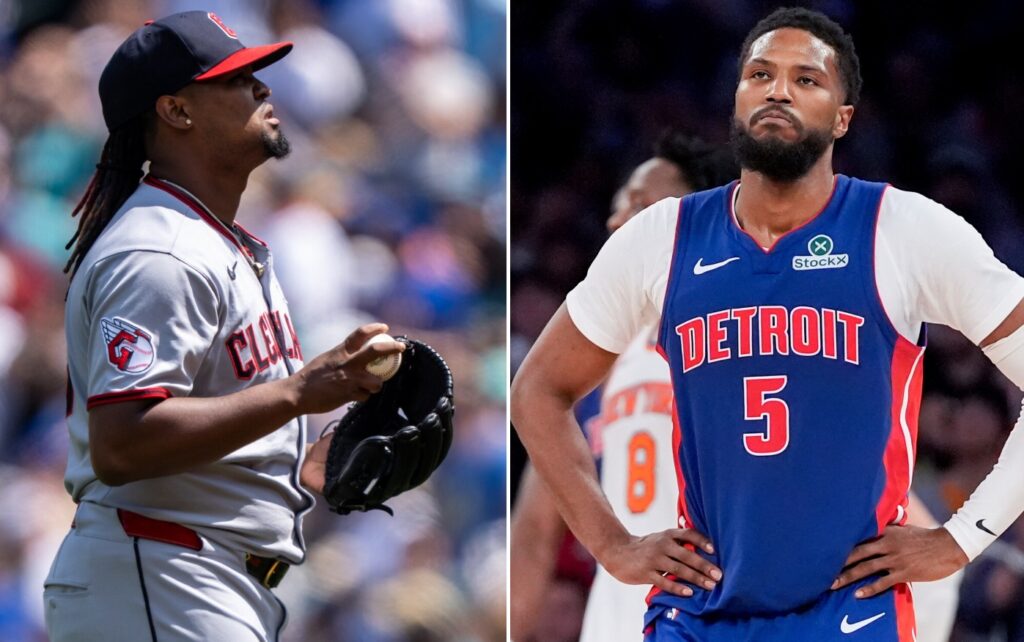Sports Gambling and Its Deepening Roots in Professional Athletics
As the sports industry continues to be captivated by the allure of sports betting, a provocative question arises: how many professional athletes will become entangled in betting scandals before this article concludes? The ongoing saga suggests that such incidents are becoming increasingly commonplace, prompting a reevaluation of the relationship between sports organizations and gambling enterprises.
Recent Incidents Highlighting the Gambling Dilemma
Just this week, the sports world was rocked by another gambling-related controversy involving Major League Baseball. Cleveland Guardians pitcher Luis Ortiz was placed on “non-disciplinary paid leave” ahead of a scheduled game, a move that, unfortunately, has become almost routine in recent times. This action coincided with the Guardians’ two-year partnership with Fanatics Sportsbook, illustrating how intertwined professional teams are with betting platforms.
This incident follows a federal investigation that cast a shadow over NBA free agency. Reports revealed that Detroit Pistons guard Malik Beasley was under scrutiny for allegedly betting on NBA games during the 2023-2024 season. Interestingly, the Pistons’ local broadcasts are aired on FanDuel Sports Network Detroit, raising questions about the influence of gambling companies within the league. Given these developments, it’s reasonable to speculate that Beasley might not be the last NBA player to face such allegations.
The Paradox of Sports Leagues’ Stance on Betting
Despite recurring headlines involving athletes caught in betting scandals, the major sports leagues continue to maintain close ties with gambling companies. The NBA’s commissioner, Adam Silver, publicly condemns players for betting, calling it a “cardinal sin,” yet the league’s website prominently features advertisements for sports betting apps. Similarly, the NFL, under Commissioner Roger Goodell, has embraced partnerships with multiple sportsbooks, even as it disciplines a handful of employees for violating betting policies. This paradox underscores a complex relationship where financial incentives often overshadow ethical concerns.
The Legal Landscape and the Rise of Sports Betting
The landscape shifted dramatically in 2018 when the Supreme Court struck down the Professional and Amateur Sports Protection Act, which had effectively prohibited sports betting in most U.S. states. Since then, the industry has exploded, with notable milestones such as the Washington Wizards and Capitals establishing sportsbooks within their arenas. Nationals Park now features a sprawling 4,000-square-foot sportsbook adjacent to the center field gate, symbolizing the normalization of betting in the sports experience.
Celebrity Endorsements and the Normalization of Betting
LeBron James, the NBA’s all-time leading scorer, has lent his name and reputation to DraftKings, helping to make sports betting a familiar part of the viewing experience. With an annual salary of over $52 million, James’s endorsement efforts target a broad audience, many of whom may not have the financial means of a superstar but are enticed by the thrill of placing bets. This marketing strategy blurs the lines between entertainment and gambling, making betting seem like an integral, harmless aspect of sports fandom.
The Ubiquity of Betting in Sports Broadcasts
Sports broadcasters and networks frequently introduce prop bets and betting odds during live games, often without much fanfare. ESPN Bet boasts over 5 million followers on social media platform X, surpassing even some NFL news accounts. Betting advertisements and segments have become so pervasive that they often fade into the background, creating an environment where gambling is seamlessly integrated into the sports viewing experience. This normalization raises concerns about the influence of betting culture on both players and fans.
When Athletes Become Victims of the Betting Culture
However, the darker side of this integration is evident when athletes find themselves embroiled in gambling investigations. Malik Beasley’s case exemplifies how lucrative opportunities can be derailed by involvement in betting scandals. The Pistons were prepared to offer him a lucrative three-year deal worth approximately $14 million annually-an investment that could have secured his financial future. Yet, allegations of illegal betting threaten to end his career prematurely, illustrating the high stakes involved.
The Broader Impact on Sports Careers
Similar stories have unfolded across various leagues: Jontay Porter’s NBA aspirations, Josh Shaw’s NFL career, and Tucupita Marcano’s time in Major League Baseball have all been impacted by gambling-related issues. The presence of betting kiosks within sports venues and the endorsement of betting by iconic athletes like LeBron James create an environment where the temptation to wager is ever-present. For highly competitive athletes, the line between entertainment and risk can quickly blur, especially when the potential rewards seem within reach.
The Ethical Dilemma and the Role of Sports Organizations
While critics may blame athletes for succumbing to gambling temptations, the reality is that they are often responding to a system that actively promotes betting. The widespread availability of betting options, coupled with high-profile endorsements and advertising, fosters a culture where gambling is perceived as a normal part of sports consumption. This environment makes it increasingly difficult for athletes to resist the allure of quick gains, even if it jeopardizes their careers.
Conclusion: Navigating the Future of Sports and Betting
As sports betting continues to expand across the United States, the challenge lies in balancing commercial interests with ethical considerations. The ongoing scandals serve as cautionary tales, highlighting the need for stricter regulations and greater awareness among athletes. Ultimately, the question remains: how many more athletes will fall victim to the seductive pull of betting before the industry and leagues take more decisive action to protect the integrity of sports?

